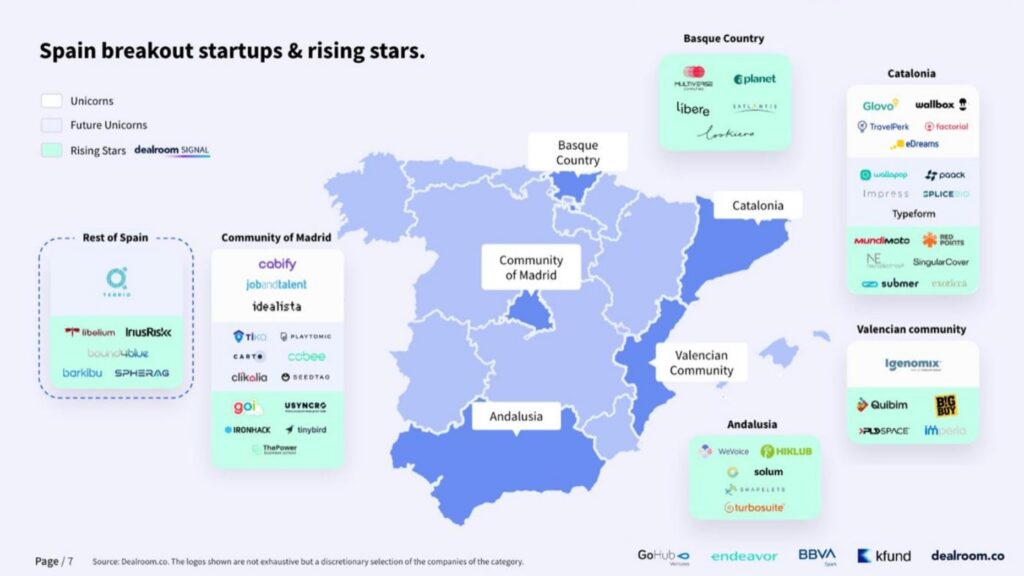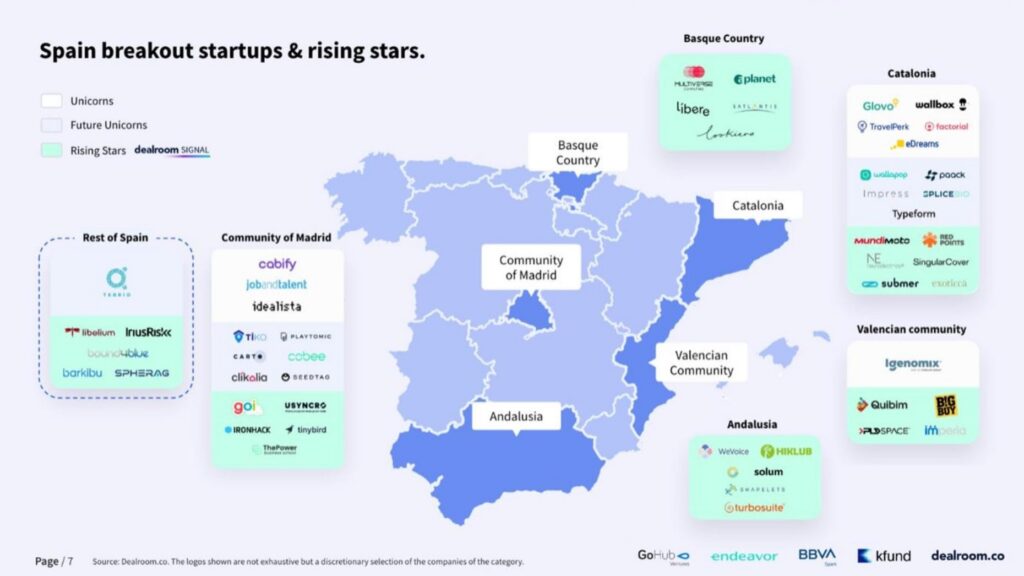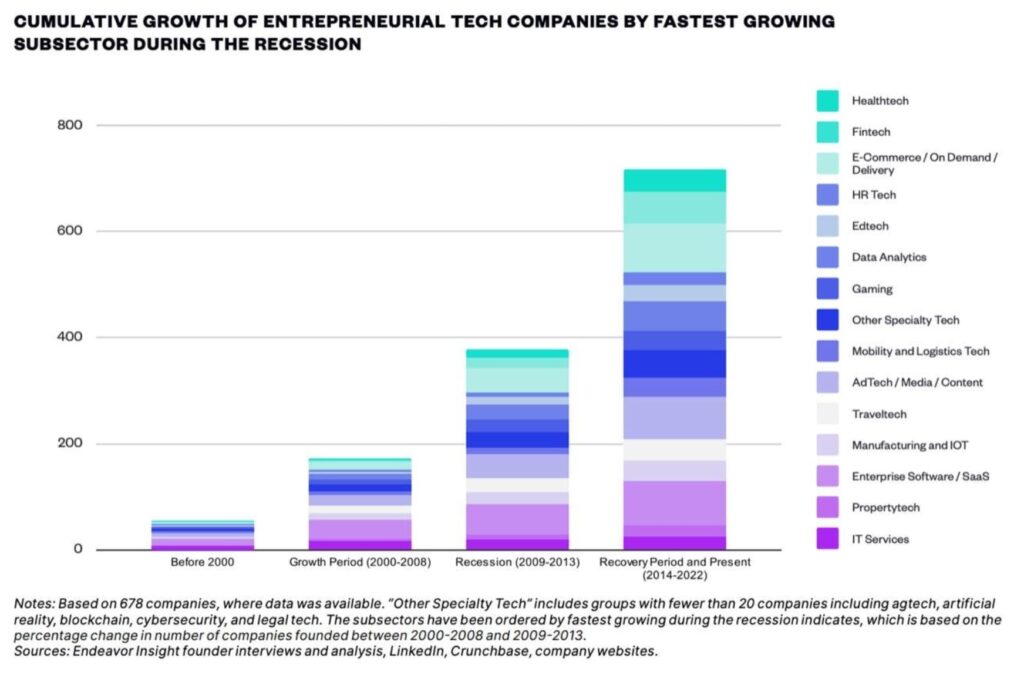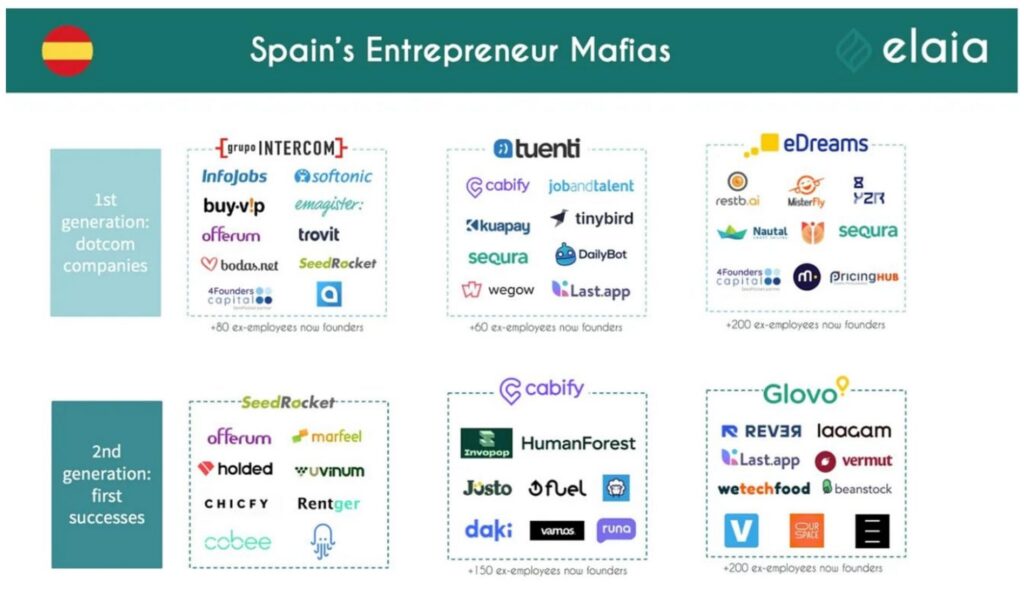Trailing behind its neighbours up north, the Spanish startup scene is quietly maturing
Cycles of Life
Comparisons can be easily manipulated. Faced with the same statistics, one can craft the story they wish to tell by arranging the numbers to their liking. The pessimist will tell you that the Spanish startup ecosystemʼs funding dropped 15% in 2022 compared to 2021, a meagre achievement. The optimist will tell you that the Spanish startup ecosystemʼs funding in 2022 represented a 166% increase compared to 2020, a stellar performance. Both numbers are true: weʼre here to understand the whole story.
Spain is known for many things. A dynamic and vibrant economy isn’t one of them, exemplified by the country’s consistently mediocre, double-digit unemployment rates. However, as Europe finally wakes up to the fact that a welfare state and an innovative economy arenʼt mutually exclusive, the past decade has seen the rise of a Spanish startup ecosystem.
The catalyst for the modern Spanish startup scene was the 2008 financial crisis, which hit Southern Europe, most notably Greece and Portugal, particularly hard. Between 2008 and 2013, Spainʼs economy shrank by 8.5%. The combination of the country’s ailing economy and its highly educated population led to two things: a painful brain drain but also a flourishing of startup creation as entrepreneurial Spaniards sought an alternative route.
The remnants of the 2008 shock are visible in the ecosystem today. 75% of active Spanish tech companies today were founded after the financial crisis. The monstrous economic tsunami might have drowned some parts of the economy, but as the wave receded, new forms of economic life bloomed.
While many of the ecosystemʼs current members could be classified as “Gen-Z”, respect needs to be shown to the veterans. Survivors of the Dotcom era, pioneering “internet” companies such as Grupo Intercom, Tuenti, and eDreams birthed many of the ecosystemʼs new generation of founders.
A fragmented ecosystem
As previously stated, the ecosystemʼs acceleration came in the midst of the financial crisis, with some of today’s ecosystem leaders such as Flywire, Jobsandtalent, and Cabify raising their first substantial rounds in the 2010s. The ecosystem is spearheaded by a couple of coveted unicorns, 14 to be exact. 4 of them were added in 2022 alone, putting the ecosystemʼs recent, explosive growth on display.
Geographically, the Spanish ecosystem is markedly decentralized. Compared to its hyper-centralized French neighbour, Spain is comprised of 17 “autonomous communities”. Some of those regions, especially the Basque Country and Catalonia, take the word “autonomous” to a new level. The latter unsuccessfully declared its own independence in 2017, a move declared illegal by the Spanish government. I’ll refrain from any political commentary, but this one: Spain is decentralized.
This plays out in the country’s startup ecosystem. A couple of key cities, each with their own specialties, are home to a substantial pool of successful startups. Madrid and Barcelona take the lead, with Valencia and Malaga trailing behind. And the so-called “second-tier” cities arenʼt just for show. Valencia is home to Flywire, Spainʼs first NASDAQ IPO, while Malaga recently welcomed Google’s new cybersecurity centre.

Image source: kfud
Government takes notice
In 2023, the Spanish government passed the much-awaited “Ley de Fomento del Ecosistema de Empresas Emergentes”. Let’s just call it Spainʼs “Startup Law”. Amongst other measures, the Startups Law introduced much-needed updates to stock options taxation, administrative business procedures, and foreign investor regulations. This legislative progress comes on the back of a maturing ecosystem, armed with a strong desire to professionalize and cement itself within Spainʼs economic makeup.
“Cabify, Wallbox, Jobandtalent, Red Points, Factorial, Glovo, and others have joined forces to create EsTech, a lobby group to influence national policies, with the ultimate goal to create the next IBEX35 tech companies.” – Elaia
As of 2022, Spain is the world’s 16th most funded startup ecosystem. On top of the unicorns it has fomented, last year saw some impressive mega-rounds, ushering in a growing base of foreign investors taking earlier and earlier bets on Spanish startups. That trend, which applies presure to local Spanish VCs, is a boon for Spanish founders faced with additional financing options and the possibility to negotiate better terms.
The scaling specificity
Keeping the comparison with the French startup ecosystem, Spanish startups do benefit from a clear advantage when it comes to scale: Latin America. France’s previous colonial empire, and subsequent linguistic connections, are mostly in Africa.
The latter’s consumer market is too different from the French one for French startups to scale there. On the other hand, Spainʼs linguistic connections span all of Latin America, with the exception of Portuguese-speaking Brazil.
That market, housing around 210 million people, greatly interests ambitious Spanish startups. With Spanish teams capable of easily communicating with Colombian or Argentinian counterparts, Madrid can serve as a base for expansion thousands of kilometres away. Spanish unicorns such as Cabify, Glovo, and Factorial all have operations in LATAM.
And it works conversely as well. As LATAM-bred startups start to scale, Spain can become a so landing for Latino startups seeking to scale on the Old Continent, Africa, or the Middle East.
Mexican unicorn Kavak opened offices in Spain as it embarks on a global expansionary push from Turkey to Oman.
The VC scenes are also connected, with some Spanish investors taking a direct interest in the culturally and linguistically relevant LATAM market. This “cross-pollination” between the Spanish and LATAM startup ecosystems can be compared to the relationship between the American and Mexican ones, propped up by the simultaneous activity of Hispanics in Silicon Valley and American tech companies in Mexico.
This direct, rooted connection to such a large, foreign market is unique in Europe, apart maybe from the United Kingdom, which can flex their shared linguistic and cultural connection to the United States. It is up to the reader to decide if they consider the UK to be European though. And, on top of that, a Spanish startupʼs expansion to LATAM doesnʼt exclude it from concurrently targeting the holy grail: the USA.

Image source: kfund
The road ahead
As the ecosystem grows, the issues to resolve evolve with it. Some in the ecosystem say that the Startup Law does facilitate the lives of first-time founders but doesn’t do enough for repeat founders or startups looking to reach significant scale without needing to relocate their headquarters.
The ecosystemʼs maturation is also exemplified by the types of startups being founded. While the ecosystemʼs early successes logically revolved around low-hanging fruits such as food delivery, a growing number of B2B SaaS products, such as unicorn Devo, are coming to fruition as the ecosystem ages. M&A activity in the space, Appleʼs acquisition of Vilynx to cite one, further demonstrates the trend.
The country’s deep tech scene, a prerequisite for having a say in the future of tech, still lacks a substantial supply of specialized investors. To remediate that, ICO, a public financial institution, has recently launched Next Tech, aimed at supporting Spanish deep tech investors. Talking of complex problems to solve, Spain is witnessing a growing number of VCs funding climate-related innovation. Inclimo Climate Tech Fund and Net Zero Ventures are some names that pop to mind.
Using the sun to its advantage
Spain has a major card to play in attracting the best foreign founders, something Silicon Valley has historically excelled at. Spain is one of the healthiest countries in the world, enjoying a quality of life made up of good weather, a sane work-life balance, and a rich culture. Cities such as Madrid and Barcelona benefit from a more and more cosmopolitan crowd as remote workers from around the globe take a temporary or permanent hiatus there.
While naive to say that startup opportunities are more numerous in Madrid or Barcelona than in San Francisco, the US’s increasing social illiberalism (dismantling of the constitutional right to abortion) and seeming disdain of key contemporary issues (Republicans and climate change) could lead the next generation of startup founders considering non-US options more seriously. Spain could capitalize on that.

Image source: Endeavor
Conclusion
Spanish public authorities have taken notice of their country’s startup potential, especially as a way to retain its best talent and even attract talent from abroad. Drawing parallels to Greece, which also suffered from the economic crisis/brain drain combo, efforts to involve the Spanish diaspora in the country’s ecosystem are essential.
Similar to France, when the State decides it wants to do something, it does it the whole way. And similar to France, some Spanish ecosystem commentators worry that an over-present state could lead to a weaker ecosystem, optimizing for grants and survival rather than brunt market success. That’s a better problem to have than the State not supporting startups at all, but it is an issue to consider nonetheless.
Spainʼs connection to LATAM seems a bit brushed over when quantifying the ecosystemʼs potential: as LATAMʼs economy grows and digitalizes, tech products created in Madrid will only become more and more relevant across the pond. This really does confer Spain a unique, unfair advantage compared to other European ecosystems.
Spainʼs biggest card to play remains just being Spain, with some tweaks. Startup ecosystems are, first and foremost, the aggregation of human talent. By finding the right balance between the Spanish way of life and Silicon Valleyʼs insatiable thirst for innovation, Spain could become a hub for founders around the world. No offence to Eastern Europe, but if Estonia can attract foreign founders despite its inhospitable climate, Spain has no excuse not to.



